| Why I Decided to Take a “Detour” in My Career |
For those who are living in developed countries, have you ever imagined yourself working and living in an emerging market?
As a millennial who spent his life shuttling between Hong Kong and San Francisco, I certainly hadn’t.
I want to share an unconventional but worthwhile decision that I made in my career and explain my three key takeaways from exploring a different work experience, both functionally and geographically, away from your typical line of work:
- Putting yourself in an entirely new environment catalyzes you to acquire new skills and knowledge faster
- Train your ability to adapt constantly in preparation for unpredictable circumstances
- Overcome your apprehension of being in unfamiliar territory by appreciating the differences and uniqueness of other societies and cultures
In 2019, when I came across a unique opportunity to work at the international business unit of a Chinese internet unicorn, I was genuinely excited, but also anxious and mentally resistant. I was thrilled at the prospect of immersing myself into a fast-moving, global tech experience and wondered if the opportunity would take me back to the US or another technology hub such as Munich, Singapore or Sydney.
The reality was rather different from my expectations, however. The role required me to not only be far away from my hometown, but also relocate to a place where I had literally no connection and familiarity with: Latin America. It would mean hurling myself miles out of my comfort zone.
To add to the uncertainty, at the time that I received the job offer, the company could not confirm which country in LatAm I would be assigned to. It would depend on the combination of my interest and business needs, which meant that I could be hopping from one unfamiliar country to another at short notice.
Considering an Unpopular Decision
Latin America is a populous region (over 600 million) extending from Mexico in the north to Argentina in the south. While Latinos are famous for their vibrant culture and history as well as their flavorful and unique dishes, Latin America is also one of the most dangerous regions, accounting for one-third of the world’s homicides.
It is also not best known for its technological innovation or business friendliness. In fact, Brazil, the largest economy in Latin America, ranked 124th out of 190 countries in terms of ease of doing business in a 2020 World Bank report. While there’s a great deal to discover and experience as a tourist, living and working there for a sustained period of time is a completely different story.
My friends and family were not particularly supportive of the idea. They did not see any practical value for me to go half-way across the globe to work in a country that is much less safe and prosperous and with people who do not share social and cultural similarities. I could just stay in Hong Kong, doing what I’ve been good at (i.e. capital markets and corporate finance work) while earning a decent income.
These are all fair points. I was going through an internal struggle. I would be very far from home, I did not speak any Spanish or Portuguese, and I did not have any career advantage in LatAm. I could be earning less and find it harder to return to the finance industry afterwards if all else failed.
BUT.
Instead of only thinking about the risks and downside, my mind also went through the potential benefits for BOTH my career and lifestyle:
When and where would I ever find a chance to gain an entirely different life experience and learn something completely brand new through a tech unicorn’s platform, while getting paid?
The relocation will be a stepping stone for my career, not the endgame. Having emerging markets experience on my resume is an edge if I am looking for a global role in the future. As long as I am convinced that this near-term change will create value for my long-term career and will not compromise my compensation significantly, it may be worth a try.
And at least from now on, surely I would have a solid answer if any interviewer ever asks me: “Can you give an example of when you made an unpopular decision?” or “Can you give an example where you have stepped out of your comfort zone?”
Adaptability, cultural awareness and the willingness to take on new challenges are important traits in today’s job market, and what better way to demonstrate this than to have lived and worked in Latin America?
If things go sideways, I can always come home. Having built some professional experience already, I am confident that I can find another job.

Rightly or wrongly, I felt this was the “correct YOLO” moment.
(Note: if you are not familiar with the acronym, YOLO stands for “you only live once”.)
After mapping out my career outlook and carefully evaluating the overall situation, I decided to take the unconventional route for once. After all, my path had been pretty stereotypical, having earned my bachelor’s degree in the US majoring in business and working in finance in Hong Kong for almost a decade.
Stepping Out of Your Geographic and Cultural Comfort Zone
In spite of some apprehension, I accepted the job offer. The next thing I knew, I was aboard my first of two flights and spent a total of twenty hours in the air to reach my new work destination: Mexico.
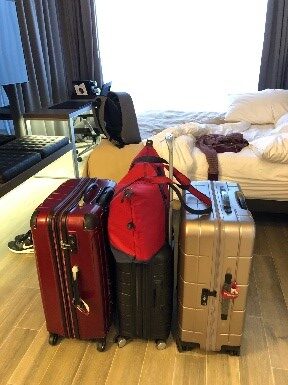
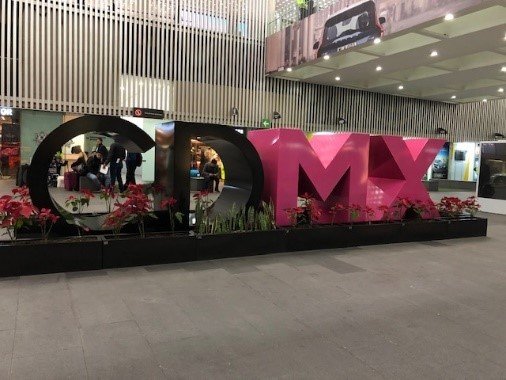

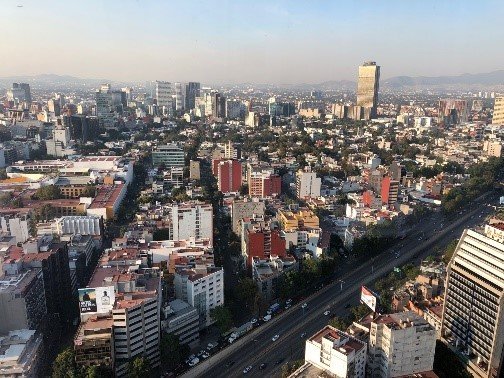
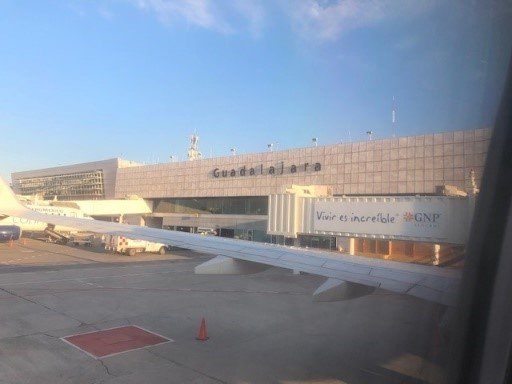
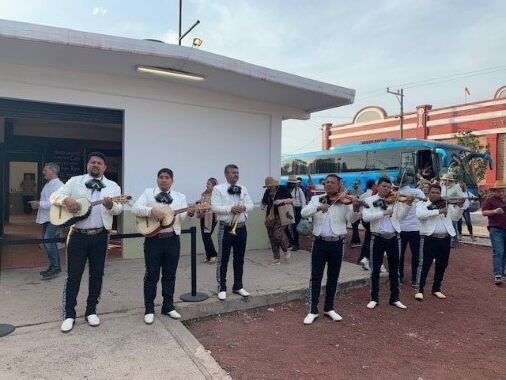
Mexico ranked second (out of four options) on my preferred list of countries (Brazil, Mexico, Chile and Colombia, in that order). Not a bad outcome.
During my six-month stint, I worked in Guadalajara and subsequently Mexico City (CDMX), two of the country’s largest cities, living under the sound of Mariachis and adapting to a diet of tacos, guacamole and Micheladas.
Never had I thought that taking the unexpected journey to a Spanish-speaking country would be as rewarding as it turned out to be.
Key Learning #1: Deliberately putting yourself in a new environment makes it easier to acquire new skills and knowledge
A key advantage of being an expat is that no one would penalize me for not knowing how things work in Mexico. As such, I felt relaxed to ask and learn things that are seemingly old information to the locals, but new to me.
In fact, I was forced to absorb new knowledge and be thick-faced every day to get on with life, from asking for directions and talking to taxi drivers to interpreting the menu in different restaurants and buying groceries in the supermarket.
As much as I enjoyed the (unbelievably delicious) Mexican food and culture, embarrassingly I still do not speak Spanish.
But I picked up enough simple and common words to get by:
| Spanish | English |
|---|---|
| Hola! | Hello! |
| Sí / No | Yes / No |
| Buenos dias | Good morning |
| Buenas tardes/noches | Good afternoon/night |
| Gracias! | Thank you! |
| Perdón | Excuse me / I’m sorry |
| Habla inglés? | Do you speak English? |
| No hablo español | I do not speak Spanish |
| Hasta mañana | See you tomorrow |
| La cuenta por favor | The bill please |
| Diez porciento | 10 percent (this is for tips) |
| Un latte frio por favor | One iced latte please |
| con poco hielo | with less ice |
And those were enough for me to survive!
For the rest, I took the primitive approach of using body language and finger-pointing, which was surprisingly effective and efficient. Thanks to our US tech giants, conversations that involve more complexity were nicely handled by Google Translate on my iPhone.
The instinct to survive in a totally new environment keeps your brain active because you must learn and try new ways to live.
Key Learning #2: Focus on adapting, adapting, and adapting
Living in Mexico as an Asian with literally no roots there taught me what real helplessness felt like. People, habits, language, food, currency, geography, transportation system, legal and politics… Everything was a mini obstacle challenge.
To complicate matters, two months after I started the job, my employer requested me to relocate from one city (Guadalajara) to another (Mexico City) abruptly due to a strategic re-organization of the company. Just as I was easing into my new life in Guadalajara, I was ready to become a fish out of water again.
But since I was already in Mexico and I had every intention to complete this trip with success, I began trying to get rid of this strange feeling by mentally blending myself in and learning to embrace my circumstances.
For example: Frequently eating with my hands (which actually takes the sensory experience to another level!). Having lunch time to start at 2 pm (based on my experience in Guadalajara). Lots of “PDA” on the street (which is rare in Asia). Not understanding a word of what people are saying. Risking my health and safety at times… all of which I was prepared to accept as I tried to integrate into the unfamiliar community by keeping an open mind and welcoming whatever was coming my way.
Soon enough, living in Mexico was no longer stressful. I had more time to focus on excelling at work and began to enjoy life and immerse myself into the local community.
Accept the fact that circumstances and people around you will change often and unexpectedly. Keeping up with your adaptivity is key to your continual success.
Key Learning #3: Find the part of local culture that you like and make a good experience out of it
Mexican has a very chill work style. People come to and leave office at vastly different times, and that was acceptable. In fact, regardless of their ranks in office, they love to joke around and make fun of one another. A bit like the tech start-ups in Silicon Valley, but even more casual.
As someone who worked for years in investment banking, I was not used to operating in such a relaxed culture. But on the flip side, I have a more flexible schedule, allowing more room to manage my time. Isn’t that a good thing?
Outside of work, I took an interest in the most well-known produces in Mexico: Tequila and Mezcal.
I used to hate the taste of Tequila, until my colleagues introduced me to original, authentic Tequila. It tasted so much better than the ones I had before that I had to visit its birthplace (the place is also called Tequila, in the State of Jalisco) TWICE to learn about its origins (via distillery tours and tasting sessions) and collect some good bottles. I convinced my buddies from the US to come south of the border and join me on this adventure.
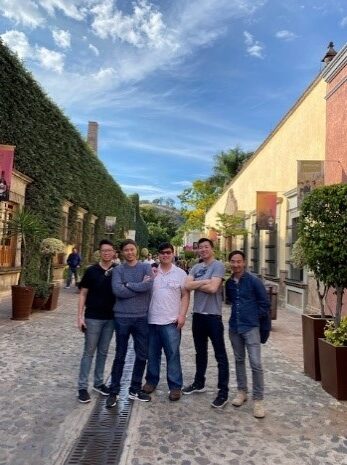
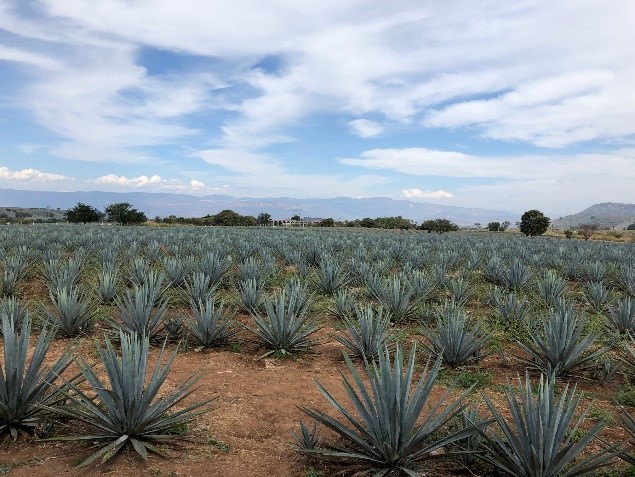
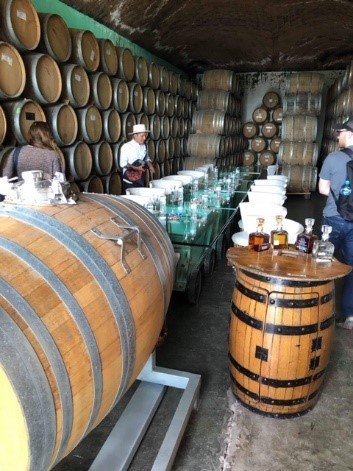
I also spent one of the weekends in Oaxaca, which two of my Mexican colleagues considered to be one of the most beautiful and worthwhile cities to visit in Mexico.
Their famous “Hierve el Agua” is known to be one of the only two petrified waterfalls in the world. I took the chance to walk on top of it.
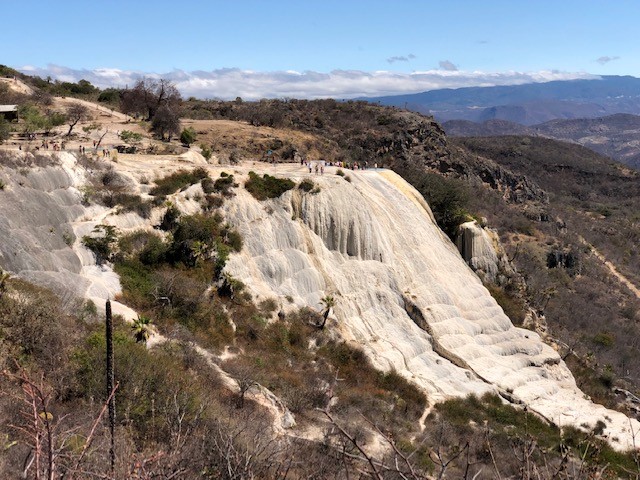
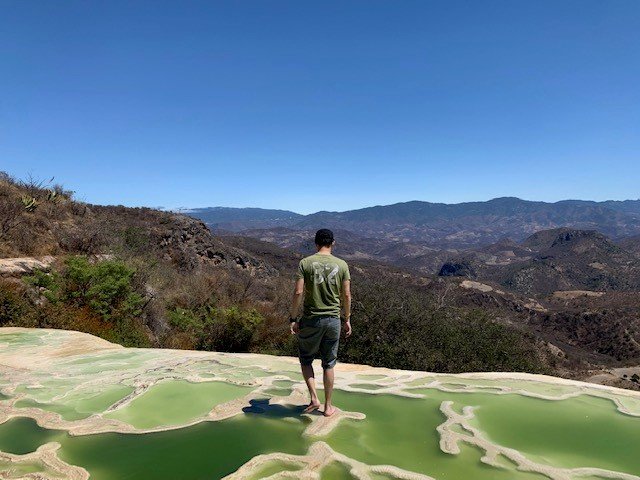
Oaxaca is also known for producing Mezcal, another famous distilled Mexican alcohol.
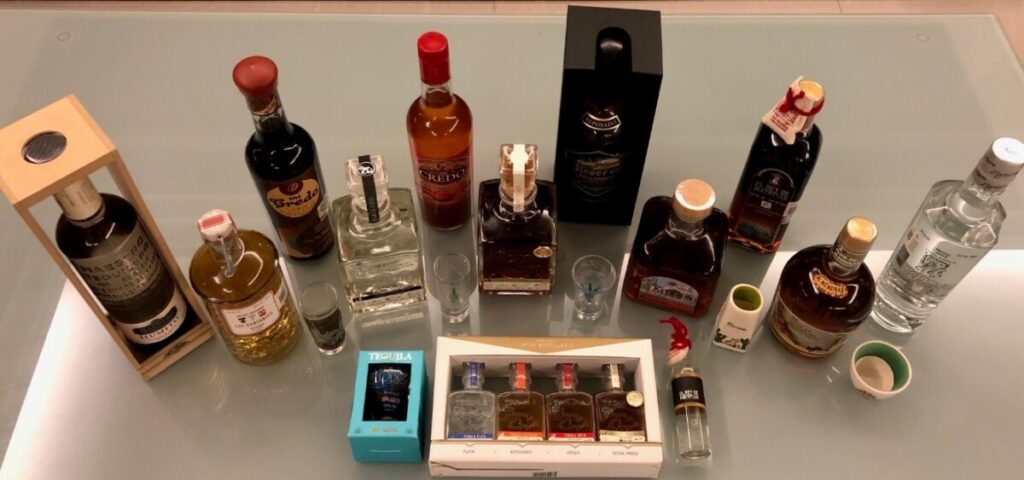
Of course, Mexican culture is much more than just alcohol.
My point is that discovering and learning an interesting aspect about a foreign culture helps you to appreciate the community and experience more.
Learn to overcome your apprehension and appreciate the differences and uniqueness of other societies and cultures. By doing so, you will be a wiser and happier person.
I wish I had more time to learn about Mexico and travel around the country. However, due to the unfortunate Covid-19 pandemic, my work assignment in LatAm was cut short.
Props to my employer’s accurate foresight and swift decision-making, I was asked to return to Hong Kong to take up another role right before Covid-19 spread across Mexico.
Looking back, I was incredibly fortunate to be able to gain such valuable exposure in 2020.
Conclusion
When Bob Iger became the CEO of Walt Disney in 2005 and trying to turn the traditional media firm around, one of his three core company strategies was “to grow globally” and to deepen connections to markets around the world.
He once said: “If you don’t go, you can’t grow.”
Over time, his turnaround strategy was proven successful as Disney has become a global icon and legendary media conglomerate.
Iger’s global (and survival) strategy for Disney is very much relevant to developing your own successful career and lifestyle.
Due to globalization, the world is more connected and interdependent than ever. It also means great companies with competent leadership that take a long-term perspective will expand overseas, which in turn increases the demand for talent possessing global mindsets and skillsets.
Thanks to technology, living and working abroad today is more convenient and fun than ever. It also means we can easily grow our overseas exposure and develop a solid worldview with intercultural competence, which increases our human capital value to the best companies (from start-ups to MNCs) around the world.
Although it may seem like a “detour”, my decision to work far away from home was based on a thorough, strategic consideration of my career.
The opportunity to work in LatAm was a nice addition to my career path and more interestingly, a unique complement to my life experience. Putting work aside, having my weekends to travel around Mexico was simply the most enjoyable part!
As more companies look to grow their businesses overseas, there will be more international opportunities similar to the one I had in Mexico. And when you are prepared to let these unique jobs come your way (not the other way around), go take them.
As Facebook COO Sheryl Sandberg said, “If you’re offered a seat on a rocket ship, don’t ask what seat. Just get on.”
Take the road with the strategic intention of broadening your perspective and deepening your understanding of values and cultures outside of your comfort zone, even if it means going half-way across the world.
Your career can only go as far as you explore.
Sherman
Time to Mobilize.